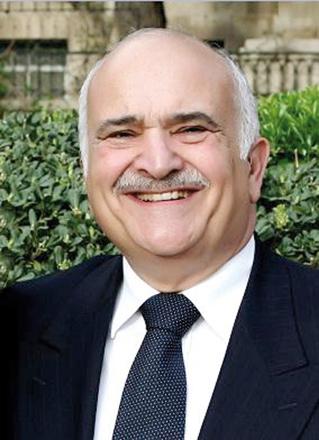- Local News
- Sun-2021-03-28 | 01:36 pm

HRH Prince Hassan, honorary chair of the World Refugee and Migration Council (WRMC), stressed "it is high time that the world moves from a policy crafted and implemented on the status-based approach towards a policy crafted and implemented on equal basis and with an eye towards alleviating vulnerability”.
Speaking during the "Vaccine Equity for the Forcibly Displaced” virtual symposium, organised by the WRMC last week, the prince highlighted the importance of vaccine equity. He wondered "since the disease and the virus know no borders, why does not this apply to the cure?”
Prince Hassan said that it is time to separate disasters into four categories, three of which complement each other: Elemental, foreseeable, deliberate and accidental, all of which apply to what the world is experiencing nowadays. He highlighted that "it is important to benefit from the lessons that we learned from the pandemic”, calling for addressing the issue at the regional and international levels, rather than at a country’s individual.
When talking about the Mashreq region (eastern Arab world), enhancing regional integration and cooperation is a must, the prince said, indicating that if the situation continues as is, there is a risk that the disparities in the rates of disease and death would lead to further social and economic differences, poverty, insecurity and injustice.
He called for supporting regional understandings related to human dignity.
Prince Hassan also highlighted the Kingdom’s efforts towards striking a balance between economic pressures and human needs to include host and affected communities.
The prince stressed the necessity of ensuring equity in vaccine delivery, noting that Palestinians do not have access to sufficient vaccines compared with the Israeli side.
"As in the words of the World Health Organisation’s report, the issue is not that the vaccines are scarce, but that the vaccines have been made scarce — ‘supply-constrained conditions’,” the prince said.
The prince concluded his speech by quoting economic anthropologist Jason Hickel: "A civilisation that prohibits poorer nations from producing life-saving vaccines in the midst of a pandemic is a civilisation that is morally bankrupt.”
Talks during the event focused on the necessity of including the most vulnerable groups in the response to the pandemic, via providing them access to vaccines, with the participants lauding the Kingdom’s approach towards offering vaccines to refugees, setting an example for other refugee-host countries.
The session, moderated by WRMC’s Rosemary McCarney, witnessed the participation of WRMC Chair Lloyd Axworthy, Director of Programme Management, Regional Office for the Eastern Mediterranean of the World Health Organisation Rana Hajjeh, Head of Secretariat of the Independent Panel for Pandemic Preparedness and Response Anders Nordström, former Jordanian health minister Saed Jaber, and UNHCR Director of External Relations Dominique Hyde.









